
Hermeto Pascoal is a Brazilian composer and multi-instrumentalist. He was born in Lagoa da Canoa, Alagoas, Brazil. Pascoal is best known in Brazilian music for his orchestration and improvisation, as well as for being a record producer and contributor to many Brazilian and international albums.

Flora Purim is a Brazilian jazz singer known primarily for her work in the jazz fusion style. She became prominent for her part in Return to Forever with Chick Corea and Stanley Clarke. She has recorded and performed with numerous artists, including Dizzy Gillespie, Gil Evans, Opa, Stan Getz, George Duke, Mickey Hart of the Grateful Dead, Santana, Jaco Pastorius, and her husband Airto Moreira.

Jovino Santos Neto is a Seattle-based Brazilian-American jazz pianist, flutist, composer, arranger, educator and record producer.

Airto Guimorvan Moreira is a Brazilian jazz drummer and percussionist. He is married to jazz singer Flora Purim, and their daughter Diana Moreira is also a singer. Coming to prominence in the late 1960s as a member of the Brazilian ensemble Quarteto Novo, he moved to the United States and worked in jazz fusion with Miles Davis, Return to Forever, Weather Report and Santana.

Slaves Mass is a 1977 album by Brazilian composer and multi-instrumentalist Hermeto Pascoal. Recorded for Warner Bros. Records, the album featured some of the most beloved Brazilian musicians of the time.

Tide is the seventh album by Antônio Carlos Jobim, released in 1970 on A&M Records and arranged by Eumir Deodato.
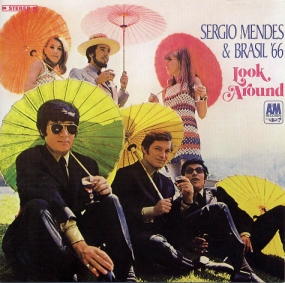
Look Around is the third studio album by Sérgio Mendes and Brasil '66. It was released in 1967. Following this album, Mendes dismissed the musicians and singer Janis Hansen and brought in Karen Phillip to sing with holdover Lani Hall.
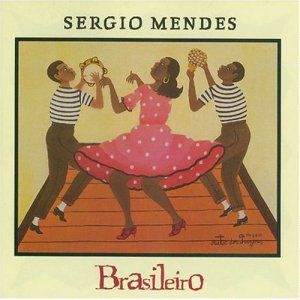
Brasileiro is a 1992 album by Sérgio Mendes and other artists including Carlinhos Brown which won the 1993 Grammy Award for Best World Music Album.

Electric Byrd is a jazz fusion album by Donald Byrd released by the Blue Note label in 1970.

Fool on the Hill is the fourth studio album by Sérgio Mendes and Brasil '66, released in 1968.

Em som maior is the only album recorded by Sambrasa Trio, a Brazilian group formed by Hermeto Pascoal, Humberto Clayber and Airto Moreira. It was released on an LP in 1965 and presents a fusion of various musical rhythms, including samba and jazz. In 2006, after long period of neglect, this album was reissued on CD as one of works included in Som Livre Masters series, organized by Charles Gavin.

Lovers is an album by jazz saxophonist Cannonball Adderley. It was recorded at Fantasy Studios in Berkeley, California in 1975 by Adderley with Nat Adderley, Alvin Batiste, George Duke, Alphonso Johnson, Jack DeJohnette, Airto Moreira. A posthumously released track included Flora Purim, Nat Adderley Jr., and Ron Carter.
Sambalanço Trio was a Brazilian samba-jazz group formed by Cesar Camargo Mariano (piano), Humberto Clayber (bass) and Airto Moreira (drums). The band started to play in 1964 and lasted for about two years. Their albums are considered some of the most important works of that period and influenced many other groups of samba and jazz.
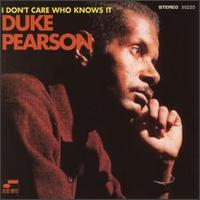
I Don't Care Who Knows It is an album by American pianist and arranger Duke Pearson featuring performances recorded between 1968 and 1970. The album was released on the Blue Note label in 1996.
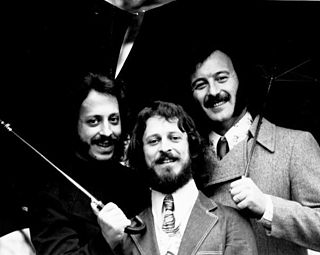
Opa were an American jazz fusion band made up of Uruguayan members. They started in the 1970s, and released two albums in the US: Goldenwings and Magic Time. Both were produced by Brazilian musician and composer Airto Moreira.
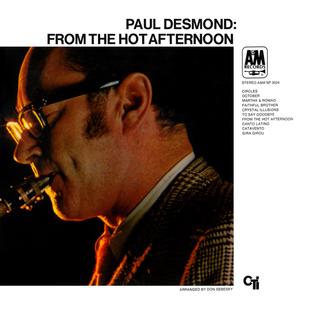
From the Hot Afternoon is an album by American jazz saxophonist Paul Desmond featuring performances recorded in 1969 and released on the CTI label.

Free is an album by Brazilian jazz drummer and percussionist Airto Moreira with performances recorded in 1972. The album was released by CTI Records and reached No. 30 on the jazz album chart at Billboard magazine.

Quarteto Novo was a group formed in São Paulo, Brazil in 1966 which released one landmark instrumental album and launched the careers of some of the band's members. The eponymous 1967 album has been influential in jazz and pop music.
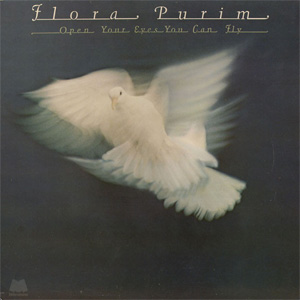
Open Your Eyes You Can Fly is the fifth solo studio album by Brazilian jazz singer Flora Purim. It was released in 1976 via Milestone Records. Recording sessions for the album took place at Paramount Recording Studios in Los Angeles, California. The album features contributions from Airto Moreira on percussion and vocals, David Amaro and Egberto Gismonti on guitars, George Duke on keyboards, Hermeto Pascoal on electric piano and flute, Alphonso Johnson and Ron Carter on bass, Robertinho Silva and Leon "Ndugu" Chancler on drums, and Laudir de Oliveira on congas. One of the songs featured here, Sometime Ago, was composed by Chick Corea with lyrics by Neville Potter and was featured on the eponymous album by Return to Forever produced in 1972, Flora Purim and her husband Airto Guimorvan Moreira also played on that album.

Encounter is a studio album by Brazilian jazz singer Flora Purim that was released in 1977 on Milestone Records.


















